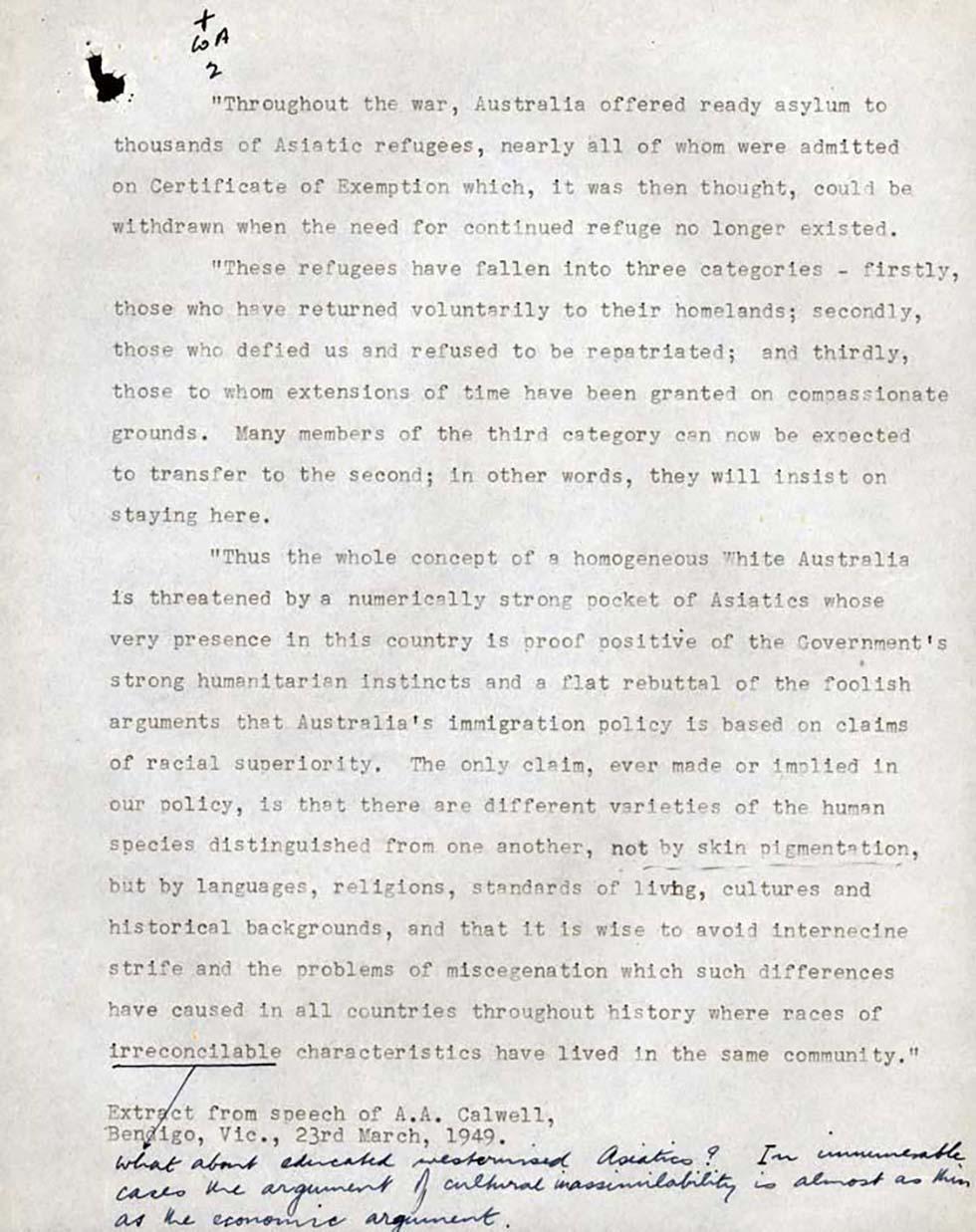
Excerpt from Arthur Calwell's speech, with handwritten comments
Aboriginal and Torres Strait Islander people should be aware that the National Archives' website and collection contain the names, images and voices of people who have died.
Some records include terms and views that are not appropriate today. They reflect the period in which they were created and are not the views of the National Archives.


Excerpt from Arthur Calwell's speech, with handwritten comments
'Throughout the war, Australia offered ready asylum to thousands of Asiatic refugees, nearly all of whom were admitted on Certificate of Exemption which, it was then thought, could be withdrawn when the need for continued refuge no longer existed.
'These refugees have fallen into three categories – firstly, those who have returned voluntarily to their homelands; secondly, those who defied us and refused to be repatriated; and thirdly, those to whom extensions of time have been granted on compassionate grounds. Many members of the third category can now be expected to transfer to the second; in other words, they will insist on staying here.
'Thus the whole concept of a homogeneous White Australia is threatened by a numerically strong pocket of Asiatics whose very presence in this country is proof positive of the Government’s strong humanitarian instincts and a flat rebuttal of the foolish arguments that Australia’s immigration policy is based on claims of racial superiority. The only claim, ever made or implied in our policy, is that there are different varieties of the human species distinguished from one another, [underlined in pen] not by skin pigmentation [end underline], but by languages, religions, standards of living, cultures and historical backgrounds, and that it is wise to avoid internecine strive and the problems of miscegenation which such differences have caused in all countries throughout history where races of irreconcilable [word underlined in pen, linked to annotation] characteristics have lived in the same community.'
[Handwritten annotation linked to the word ‘irreconcilable’:] What about educated mastermind Asiatics? In innumerable cases the argument of cultural inassimmilability [sic] is almost as thin as the economic argument. [End annotation.]
Extract from speech of A.A. Calwell,
Bendigo, Vic., 23rd March, 1949.
Learn how to interpret primary sources, use our collection and more.
